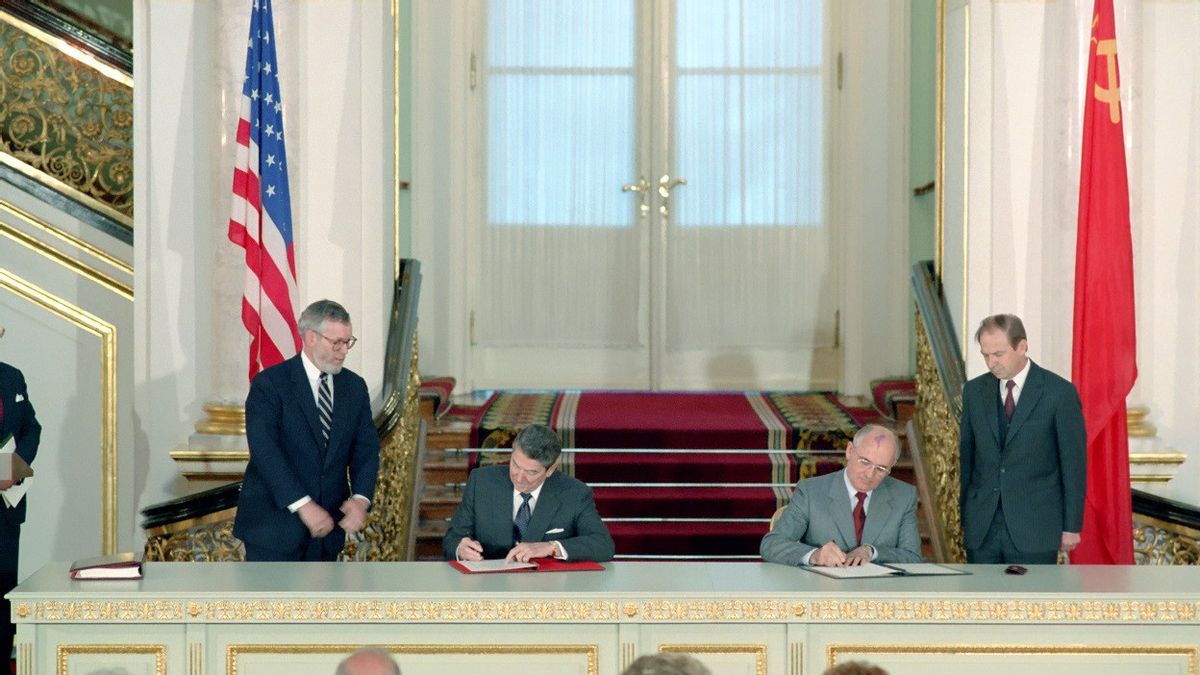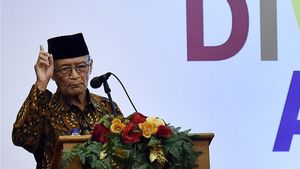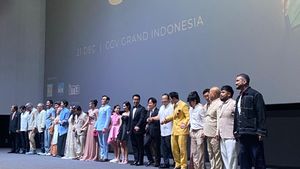JAKARTA - The last president of the Soviet Union to end the Cold War without bloodshed, but failed to prevent the country from collapsing Mikhail Gorbachev from dying at the age of 91 on Tuesday, hospital officials in Moscow said.
"Mikhail Gorbachev passed away tonight after a serious and prolonged illness," the Russian Central Clinical Hospital said in a statement.
Praised in the West as the person who helped break down the Berlin Wall and ended the Cold War without bloodshed, Mikhail Gorbachev broadly 'dritic' in the country as a "grave excavation" of the Soviet Union.
Gorbachev intends to revitalize the sclerotic Communist system through democratic and economic reforms, never intending to remove it.
But he let go of power beyond its control, and found himself occupying a shrinking middle ground between people who intend to maintain the centralized power and separatists who want to dismantle it.
In August 1991 he survived a shambolic coup by a hardline that collapsed after three days, but his authorities have been fatally damaged. Four months later his extended rival, Russian President Boris Yeltsin, designed the breaking of the Soviet Union and Gorbachev'missing power'.
"In this case, I feel that Gorbachev is a tragic figure, similar in many ways to Raja Lear'selak," said Valery Solovei, one of the people in Gorbachev's inner circle in the 1980s and after his fall.
"This is a person who governs a superpower, but by the end of his reign, the country has disappeared."
After decades of tensions and Cold War confrontations, Gorbachev reached a nuclear arms deal with the United States. He brought the Soviet Union closer to the West than any point since the Second World War.
The West quickly welcomed Gorbachev. British PM at that time Margaret totaled her as "a man we can take with us to business".
Gorbachev is in a warm personal relationship with Ronald Reagan, the US President who has called the Soviet Union a "evil concern", and negotiated an important deal in 1987 to remove medium-range nuclear missiles.
In 1989, he pulled Soviet troops out of Afghanistan, ending a war that had killed tens of thousands and exacerbated ties with Washington.
Later that year, when pro-democracy protests hit Polish Communist countries Hungary, East Germany, Czechia, Bulgaria and Romania, the world held back. He refrained from using force, unlike previous Kremlin leaders who had sent tanks to destroy the insurgency in Hungary in 1956 and Czechslowakia in 1968.
But the protests sparked aspirations for autonomy in the 15 Soviet republics, which were destroyed over the next two years in a chaotic way.
Reflecting on the years later, Gorbachev said costs to prevent the collapse of the Berlin Wall would be too high.
"If the Soviet Union wanted it, there wouldn't be such a thing and there would be no German unification. But what would happen? A disaster or a Third World War."
But, he saw the legacy destroyed in the last months of his long life, when President Vladimir Putin's invasion of Ukraine brought Western sanctions to Moscow.
Meanwhile, politicians in Russia and the West began to talk openly about the new Cold War, to the risk of a Third World War with nuclear.
However, its broad internal reforms helped weaken the Soviet Union to the point where it collapsed, a moment that President Vladimir Putin called the second-century "biggest geopolitical catastrophe".
"My policy is open and sincere, a policy aimed at using democracy and not bloodshed," he told Reuters in 2009. "But it is very detrimental to me, I can tell you that."
Its policy of "glasnost" (discussion of speech) and "perestroika" sparked a wave of public debates that could be said to have never happened before in Russian history.
Free general elections, free press, representative legislative and multi-party systems have all become reality under their supervision, he said.
"We are open to the world, reject interference in the affairs of other countries and use of troops beyond our borders, and are greeted with trust, solidarity, and respect," he said.
In March 1991, a referendum generated a large majority to defend the Soviet Union as the updated "same sovereign republic federation", but six of the 15 republics boycotted voting.
In short, located in a remote rural house in late 1991, Boris Yeltsin of Russia and leaders of the Ukrainian and Belarusian republics signed an agreement that abolished the Soviet Union, replacing it with the Commonwealth of Merdeka Countries.
On December 25, 1991, the red flag was lowered over the Kremlin for the last time. Gorbachev appeared on national television to announce his resignation.
The English, Chinese, Japanese, Arabic, and French versions are automatically generated by the AI. So there may still be inaccuracies in translating, please always see Indonesian as our main language. (system supported by DigitalSiber.id)













